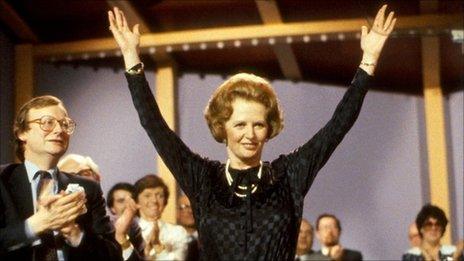Margaret Thatcher was urged to soften image
- Published
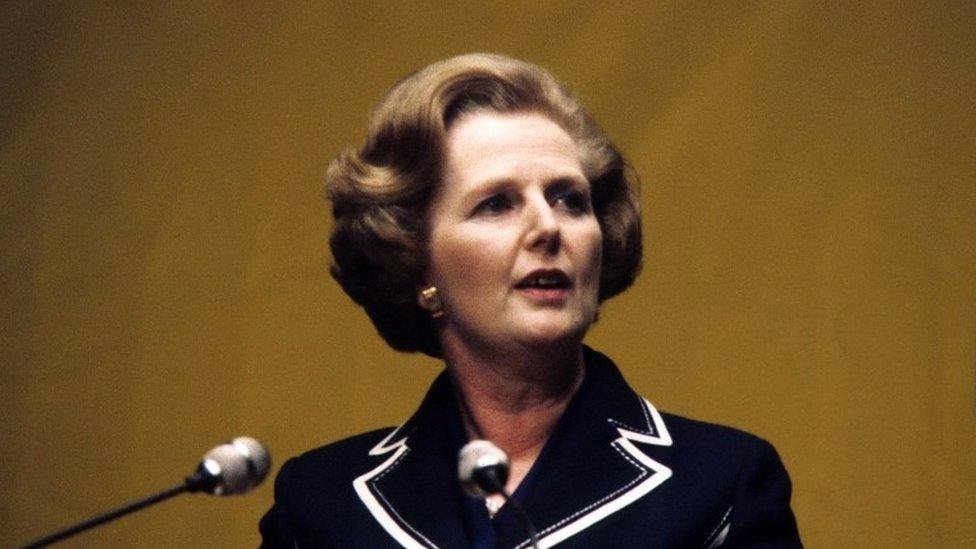
Margaret Thatcher shied away from words like "compassion" and "caring"
Former Prime Minister Margaret Thatcher was urged to soften her image, newly released personal documents reveal.
The warning came in a memo from chief press secretary Bernard Ingham setting out her strengths and weaknesses.
Other papers from 1985 contain reports of a Commons "scuffle" between Labour MP Robert Kilroy-Silk and future party leader Jeremy Corbyn.
Plans to exclude Mrs Thatcher from the unveiling of a Falklands War memorial at St Paul's Cathedral also feature.
The Margaret Thatcher Archive Trust is in charge of the gradual release of her private files.
'Dominant person'
Mr Ingham's five-page memo to Mrs Thatcher states that she had gained a reputation among the public of being "hectoring, strident and bossy".
On the positive side he described her as a "decisive, strong-minded person" and "someone who is clearly going to be very hard to beat".
"In short, you remain the dominant person in British politics," he added.
Mr Ingham tried to get her to change her style for the Conservative Party conference in Blackpool but she declined to use words such as "compassion" and "caring" in her speech.
Chris Collins, from the trust, said: "Her public image was so fixed that she couldn't win - if she had suddenly shown a softer side, people would not have believed it."
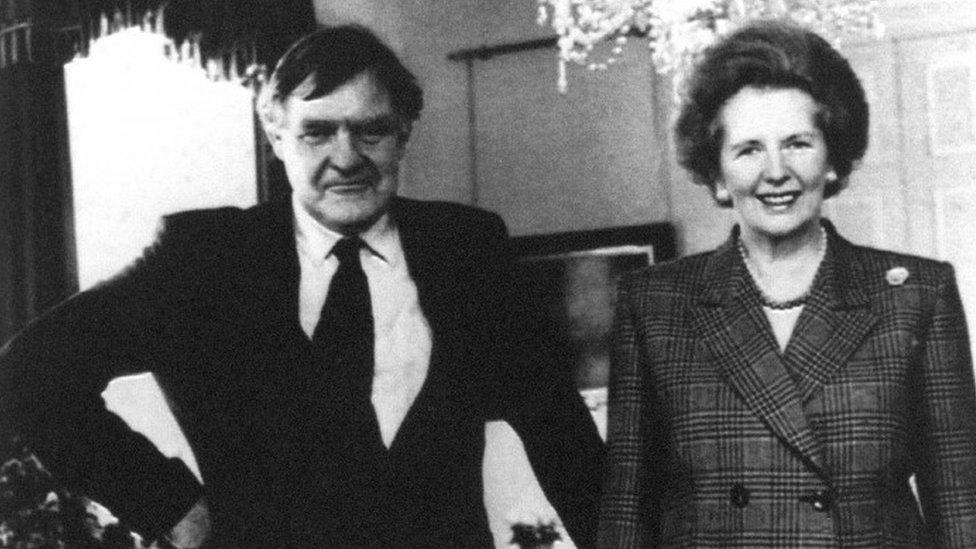
Bernard Ingham said Mrs Thatcher was the "dominant person in British politics"
The spat between Mr Corbyn and Mr Kilroy-Silk is detailed in a press digest dated 31 October 1985.
Coverage at the time suggested Mr Kilroy-Silk had attempted to punch Mr Corbyn.
Earlier this year Mr Corbyn told the Guardian Mr Kilroy-Silk was angered by him arguing on television against the expulsion of members of hard-left Militant Tendency group from the party. Mr Corbyn added that he had "walked off".
Explosive response
An exchange of memos and letters reveal that the Church of England and Downing Street clashed over proposals to exclude Mrs Thatcher from the Falklands ceremony.
She is said to have responded "explosively" after being told ecclesiastical protocol and limited space meant there would not be room for politicians in the cathedral's crypt for the memorial unveiling by the Queen.
Mrs Thatcher had accused the then Archbishop of Canterbury, Robert Runcie, of a lack of patriotism for praying for the Argentine dead in 1982.
Her Principal Private Secretary Robin Butler wrote: "Let me have a word. I think that the PM should be present at the unveiling."
But the then Defence Secretary Michael Heseltine signed off the arrangement - he later apologised, saying: "I am satisfied that this matter was not well handled."
The documents do not make clear what the outcome was or whether Mrs Thatcher attended.
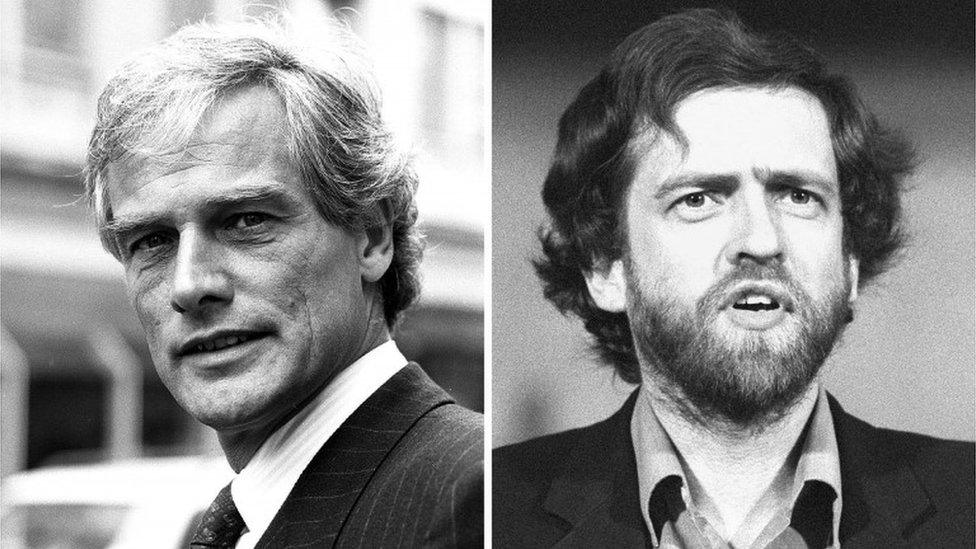
The papers describe a dispute between Robert Kilroy-Silk (left) and Jeremy Corbyn
The papers also say Mrs Thatcher considered a comeback to the cabinet for Cecil Parkinson in 1985.
The married trade and industry secretary had been forced to stand down in 1983 after it emerged his former secretary Sara Keays was carrying his child. He did eventually return to the cabinet in 1987.
Members of the public will be able to access the archives from Monday at www.margaretthatcher.org.
Baroness Thatcher, who was prime minister from 1979 to 1990, died aged 87 in 2013.
- Published16 July 2015
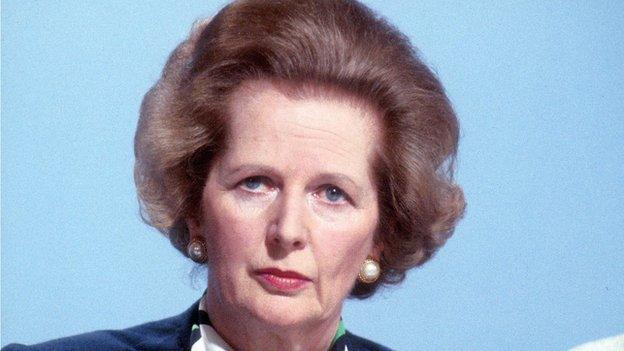
- Published19 June 2015
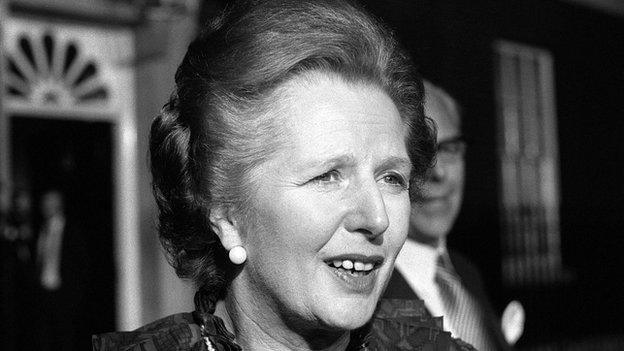
- Published8 April 2013
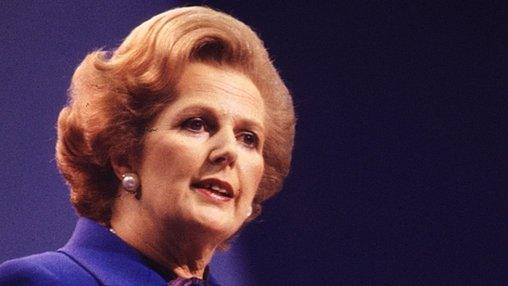
- Published8 April 2013
